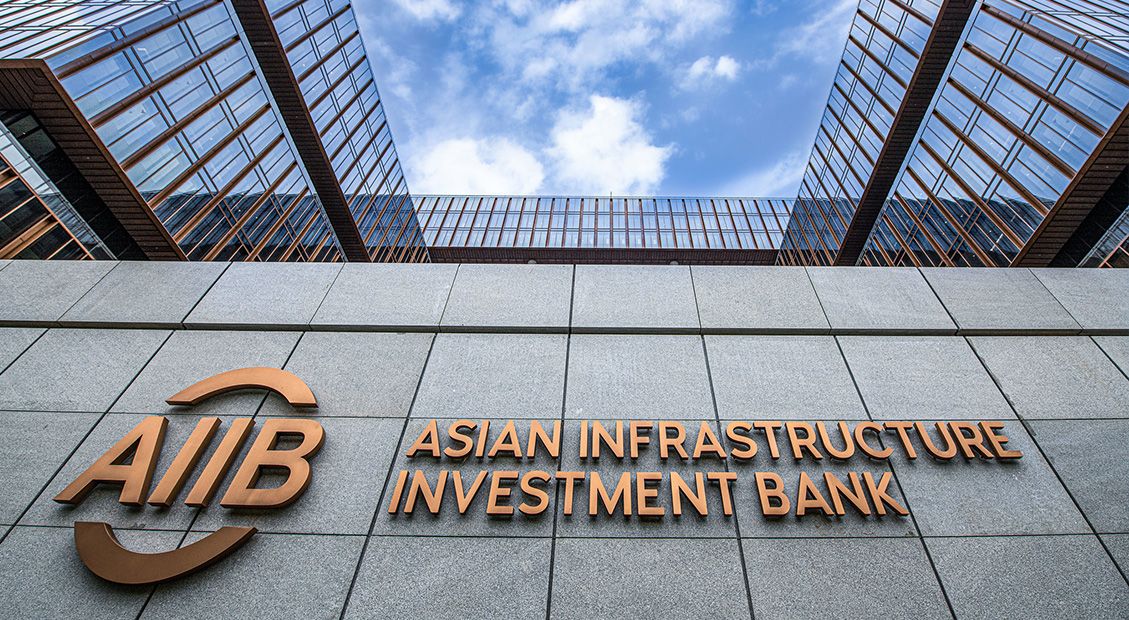Irfan ul Haq
The Geo-Economics of the Asian Infrastructure
Investment Bank (AIIB). A World Bank 2.0?
Irfan ul Haq

In an era where institutions hold the key to global influence, China has emerged as a formidable player, deftly manoeuvring within the international ring. Beyond the widely discussed Belt and Road Initiative (BRI), President Xi Jinping has masterfully crafted a strategy to solidify China's leadership in the Asia Pacific region. One of the standout moves was the establishment of the Asian Infrastructure Investment Bank (AIIB), a groundbreaking multilateral economic institution that challenges the traditional dominance of Western powers.
As the first non-Western power to create such an institution, China has asserted its determination to safeguard its own interests while championing the cause of countries that have long felt neglected by US-led international bodies. With 21 countries initially signing on to the AIIB's vision in 2014, and its formal inception in 2016, China embarked on a path that would not only reshape the global economic landscape but also redefine its own role on the world stage.
By assuming greater global responsibility, China aims to bolster the development of Asian and global economies, using the AIIB as a vehicle to drive progress. This audacious move has raised eyebrows worldwide, sparking intrigue and debate. In a world long dominated by Western-controlled financial institutions like the World Bank and the International Monetary Fund, China's decision to establish the AIIB has opened up a new frontier, providing borrowers with alternatives from the traditional Washington Consensus. From China's growing dominance in multilateral finance to its strategic vision for the Indo-Pacific region, we will unravel the complexities and consequences of what some have dubbed “World Bank 2.0” - a moniker that aptly captures the seismic shifts unfolding in the global arena.
China’s Dominance in Multilateral Institutions
China has also established the AIIB and the BRICS New Development Bank (NDB) to provide financial support for the implementation of the ambitious One Belt, One Road initiative and infrastructure development in Asia. With a capital share of 31% in the AIIB and 40% in the NDB, China holds more influence than any other member. Consequently, China can shape the rules and regulations of these financial institutions, providing a new platform to expand its economic clout regionally and globally. This aligns with China's vision of assuming greater international responsibilities, as President Xi Jinping sees the AIIB as a positive step towards improving the international economic system and delivering global public goods.
The AIIB’s emergence heralds a new era, where China's economic clout is projected to soar, challenging the established norms and institutions of the international economic architecture. With its strategic focus on the Indo-Pacific region and its determination to assume greater global responsibility, China aims to craft an economic and political order rooted in the “Beijing Consensus,” an alternative to the Western-dominated “Washington Consensus.”
Breaking the Monopoly of Western Institutions
China's emergence as an alternative to Western-dominated financial institutions challenges the monopoly of the World Bank (WB) and the International Monetary Fund (IMF). By offering alternative borrowing conditions, China provides more options for countries seeking financial support. Despite initial opposition from the United States, which saw the AIIB as a threat to the international financial system, 106 countries, including some of America's key allies like Great Britain, South Korea, and Australia, became members of the bank. This growing interest in the AIIB reflects the rising appeal of China-backed banks and their ability to offer services to a broader range of countries.
As the contest for power and influence intensifies between China and the United States, the AIIB assumes a pivotal role. It serves as a linchpin in China's grand design, positioning itself as a regional security power and a force to be reckoned with worldwide. This seismic shift poses profound implications for the global stage, as China's rise disrupts the established balance and raises fundamental questions about the future of international relations.
Implications for Global Economic Order
China's growing geo-economic influence through the AIIB and other initiatives could pave the way for its rise as a global economic power. This has significant implications for the norms and institutions of the international economic architecture. Observers such as Huiyao Wang argue that China aims to play a greater leadership and governance role in global finance and investment through the establishment of these new development banks. Some view the AIIB as part of China's broader strategy of institutional balancing, creating and leveraging institutions to counteract US influence. This perspective suggests that the AIIB represents a significant challenge to US global leadership and the existing institutional and ideational bases of the Pax Americana. China, however, denies seeking to change the established global order but has demonstrated its intention to become a regional security power capable of rivalling the US. By providing an alternative to the traditional Western-dominated financial institutions, China expands its sphere of influence and projects itself as a key player in global finance. The story of the AIIB is not just about infrastructure development or financial prowess; it is a story of ambition, determination, and the relentless pursuit of China's own vision of global leadership.
Irfan ul Haq holds A Ph.D. in Political Science from the University of Kashmir, Srinagar, and is currently doing an internship with the Jammu and Kashmir Policy Institute, Kashmir.
Back to Meridian 5.png)

